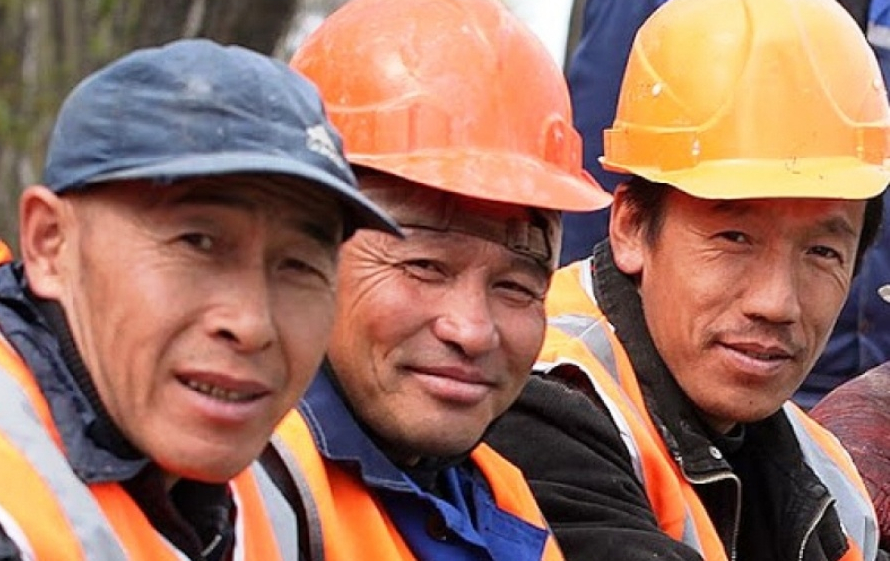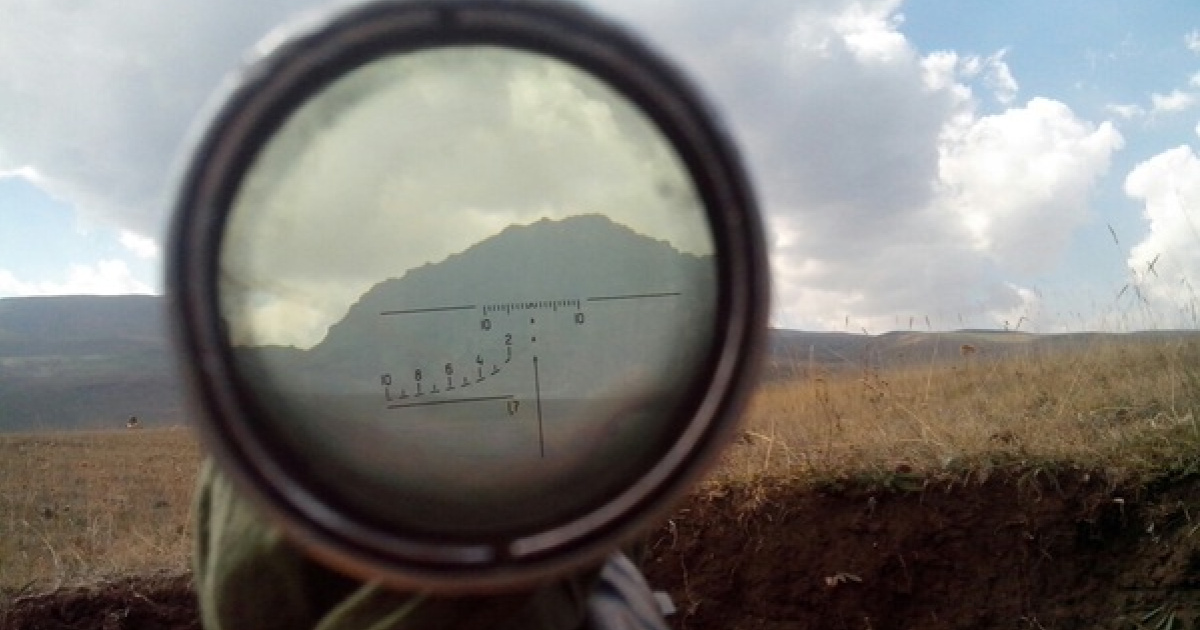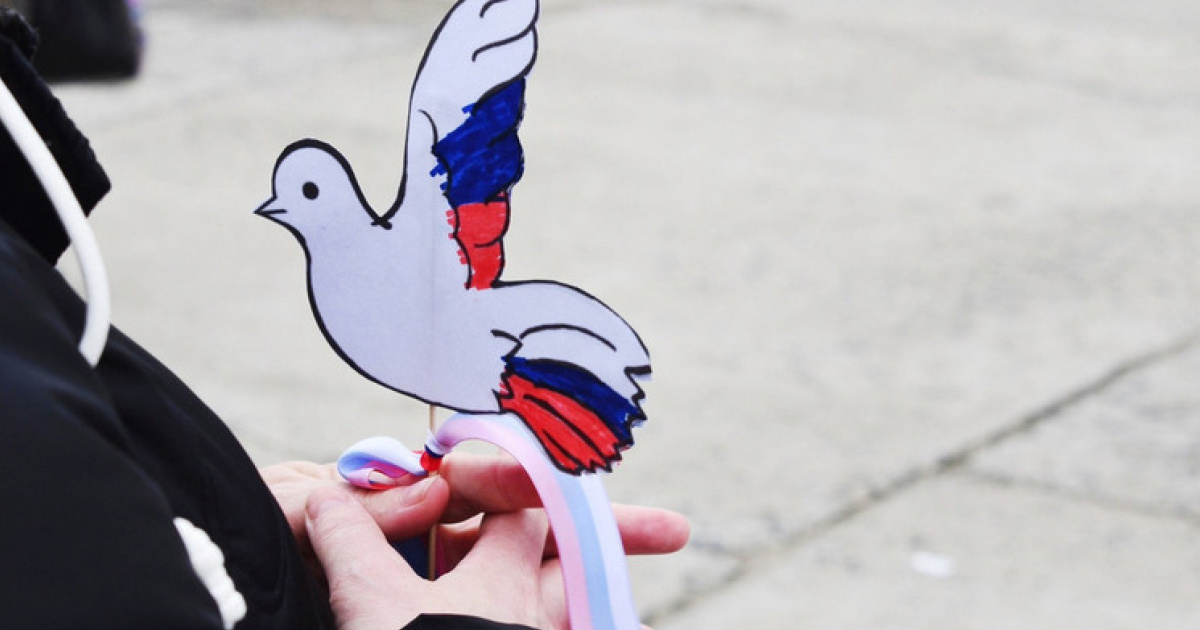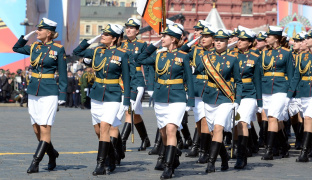The highest public post in Ukraine provides tremendous opportunities for personal enrichment to the winner of the election campaign.
Access to great opportunities, in turn, requires large investments. That is why there can be no random people who have risen solely on personal charisma among the rating politicians.
Each of the top candidates has its own business history and it can tell way more about him/her than the election program.
OstroV have analyzed status and declarations of the top 5 current leaders of the election marathon.
Poroshenko: Offshore confectioner
It is more logical to start with the current president, who is consistently among the ten richest Ukrainian businessmen according to various business publications.
Thanks largely to this, P.Poroshenko won the previous election: many naively believed that if a person is dollar billionaire, he will no longer steal from the state and its citizens, and will not allow others.
Indeed, the current president is ultimate owner and beneficiary of more than 100 companies and enterprises.
His main areas are: financial sector and agriculture, as well as confectionery business and media.
Therefore, it can hardly be considered a coincidence that it was precisely these areas in the state economic policy that received the most attention during the rule of P.Poroshenko.
As a result, the role of agricultural sector in the national economy has significantly increased. If in 2014, foreign exchange earnings from agricultural exports (together with the food industry) amounted to $13.6 billion, then in 2018, it was already $18.8 billion.
At the end of the 2013-2014 marketing year (starting from September 1), sugar exports from Ukraine amounted to 9 thousand tons. In January-November 2018 – 526 thousand tons.
At the same time, among the leaders in terms of exports are Vinnytsia Grain Products Plant No.2 and Podolye Food Company, which are members of the Ukrprominvest Agro group of P.Poroshenko.
At the same time, during the reign of the current president, the importance of ferrous metallurgy decreased, before that - one of the main branches of Ukrainian industry.
Revenues from exports of ferrous industry products fell from $12.9 billion in 2014 to $9.937 billion in 2018. This is despite the rise in world steel prices.
Tellingly that at the same time, P. Poroshenko prefers to pay the main part of taxes not in Ukraine, but in offshore jurisdictions, where payments are much lower.
These are the British Virgin Islands, Gibraltar and Cyprus. In particular Cee Confectionery Investments Ltd is registered in Cyprus, the parent structure of the Roshen confectionery company.
Being (according to experts) owner of the billions, P.Poroshenko could not clowned as his predecessor with multi-million fees for writing books that nobody has ever seen. However, according to the declaration, the most significant part of the personal official income of the current president was received as interest payments on deposits in the International Investment Bank - of which he himself is the owner.
For example, he received $588 thousand percent for 2018 from the IIB, in which $25.49 million is being kept on deposits.
Apparently, a circumstance mentioned above forces the head of state to resort to such a "fun" trick: his main income goes to offshore accounts and he prefers to keep this fact under the radar.
That is why the declarations do not show, for example, $72 million dividends from the Lipetsk confectionery factory Roshen for 2014-2016, which were previously reported in the media: they are not received by the president himself, but by companies registered in offshores, where he formally not even listed as owner.
However, at the end of December 2018, it became known that P.Poroshenko received dividends from the entire Roshen confectionery company in the amount of $20.7 million, of which, as stressed in the presidential administration, "almost $2.2 million" will go to the budget as taxes.
It is not difficult to calculate that it is 10-11% of the income received. For comparison: 18% of the income tax, 1.5% of the military tax, 22% of the single social contribution are bring calculated from the salaries of ordinary citizens.
That is, if the head of state was "like everyone else", he would have to pay 4 times more - $8,6 million. As the saying runs, feel the difference.
It is interesting that back in 2016, the president received only $443 thousand as interest on deposits in the IIB. It is unlikely that in Ukraine, one can find many depositors of banks whose interest payments have increased by one third over 2 years.
It is even more curious that the rates on deposits in 2018 fell to an average annual value of 2.5% for dollar deposits compared to 4.5% in 2016.
Hence, there must be other reasons for such a rapid growth of income. One of the possible sources may be the purchase of bonds of the external state loan of Ukraine.
These operations are being handled by Avangard Bank, founded by top managers of the ICU investment company which accompanies P.Poroshenko's business.
When in September 2018, the Ministry of Finance of Ukraine placed bonds of the external state loan for $2 billion at a record 9.75% (compare this with 2.5% for deposits in banks for ordinary citizens) – many have assumed that such an insanely expensive loan was made for a reason; that these bonds were bought by companies related to the president. Moreover, there is nothing supernatural in this version – they "indulged" in similar things even under the "criminal regime".
Let us recall that the so-called "Yanukovych's money", confiscated in April 2017 and formally owned by companies registered in Cyprus, was also kept in the state-owned Oshchadbank accounts just in the bonds of the external state loan, and not in the banknotes with the image of Benjamin Franklin.
Finally, another global large-scale option to earn for the president was due to the "banks' collapse" that took place in 2014-2016. The National Bank of Ukraine was headed by Valeria Gontareva and the Deposit Guarantee Fund for physical entities – by Konstantin Vorushilin.
Before joining the National Bank, V.Gontareva managed the ICU, and K.Vorushilin, who still continues to lead the Deposit Guarantee Fund for physical entities, is a trusted top manager of P.Poroshenko. He was chairman of the board of the Mriya bank and deputy head of the board for finance and investment of the Bogdan auto-corporation owned by the president.
The redistribution of property occurred as follows. The National Bank of Ukraine issued a resolution declaring one bank or another to be insolvent, after what it came to the management of the Deposit Guarantee Fund for physical entities with all its "good" – assets and collateral, which were usually valuable real estate (land plots, elite office and residential buildings, hotels, etc.).
The Deposit Guarantee Fund for physical entities further sold these assets with a very large discount. The Recovery investment fund which is part of the ICU was among those who were interested in buying up troubled debts and property.
By the way, later on, the owners of a number of banks succeeded through court in obtaining recognition of the illegitimacy of the NBU actions – i.e. the fact that these banks were closed down unreasonably.
However, their property already has new happy owners.
Against this background, such "trifles" as regular victories in state and municipal tenders of the Bogdan and Kuznya na Rybalskomu companies owned by P.Poroshenko are really a trifle…
Tymoshenko: legacy of "gas princess"
The declaration of Yulia Tymoshenko, who headed the Cabinet of Ministers of Ukraine twice, is much more modest. She does not have her own housing and rents a luxurious mansion near Kyiv with an area of 588 m2 from "good people", if you believe this information.
Her own income for the previous year is salary of the Verkhovna Rada deputy in the amount of $8.4 thousand and another $9.4 received for the deputy activities.
Husband Oleksander Tymoshenko, who lived in the Czech Republic until recently, helps. The spouses constantly emphasize that he is a businessman, but what exactly he does is a mystery for many years.
Nevertheless, in 2018, this mysterious business brought the ex-premier husband $125.5 thousand in Ukraine and $9.5 - from Prague.
Of the companies associated with her, the presidential candidate indicates only Geofors and Lady Yu – not telling names at all.
Obviously, it is not just a matter of "modesty" of a politician who is "embarrassed" to show to the public everything "hard-earned". It is just that the best times for Yu.Tymoshenko's business remained in the second half of the distant 1990s, when she owned the United Energy Systems of Ukraine company.
Thanks to the "friendship" of "Lady Yu" with the then Prime Minister Pavlo Lazarenko, United Energy Systems of Ukraine became the largest supplier of Russian gas to Ukraine – it also sold it to industrial consumers.
Moreover, in the spirit of that time, transactions were concluded on a barter basis, and buyers did not always pay for the goods received.
In this regard, we can recall, for example, the criminal case opened against Yu.Tymoshenko already in 2011 by the Prosecutor General's Office Of Ukraine.
According to the investigation, she "hung" on the state the $405.5 million debt of the United Energy Systems of Ukraine before the Russian Ministry of Defence – and Ukraine had to pay. Since P.Lazarenko provided state guarantees for this deal "out of kindness".
The given episode allows us to estimate the scale of operations and revenues of "Lady Yu" of that period. After all, the money that she "forgot" to return to the Russian military did not disappear, but simply anchored somewhere in offshore accounts.
During the reign of V.Yanukovych, there were many publications on this topic in the media. In particular, referring to the data of the PGOU, it was reported that only personal pocket expenses were reported in 1996-1998. Yu.Timoshenko spent $914 thousand from plastic cards issued to the Somoli Enterprises offshore company.
Of course, the former scope is long gone. Nevertheless, Yu.Timoshenko celebrated the wedding of her daughter in December 2014 on a grand scale: tables for 1 thousand guests were set in the capital's Olympic Sports Complex.
In the 1990s, the former prime minister also was owner of a small gas company Kub-Gaz, but sold it in the early 2000s.
In the same period, she owned the stake in the Southern Mining and Processing Plant (Kryvyi Rih, Dnipropetrovsk oblast) for a very short time, having sold it to oligarch Vadym Novynskyi, who neither confirms this deal nor denies it.
In 1995-1996, United Energy Systems of Ukraine annually delivered to Ukraine about 36 billion m3 of gas per year. Based on the average price of gas for that period of $30/1000 m3, we will receive income of $1.1 billion per year, or $ 2.2 billion for the entire period of Yu.Timoshenko's company activity in the gas market of Ukraine.
Part of this money was spent to purchase gas. Apparently, Yu.Timoshenko had to share with P.Lazarenko, but then: "Lady Yu" became the dollar billionaire much earlier than the current president, who was just beginning to lay his hands on the steam plants, which became "ownerless" after the collapse of the USSR.
Many years have passed since then, but it is unrealistic to physically spend such a huge amount of money.
Even if you just keep it in Western banks at the lowest interest rates – this is quite enough for a comfortable life and for financing the current political activities.
It should be said for fairness' sake that during the period of both premierships of Yu. Tymoshenko, she did not have the same wage options as P.Poroshenko during his presidential term. In 2005 and 2008-2010, political situation in the country was different and it was not possible to adjust such schemes.
This is confirmed by the fact that already after the resignation of Yu.Tymoshenko and coming to power of Viktor Yanukovych, no significant financial abuses in her activities were found – no embezzlement or corruption.
That is why the PGOU had to open cases against the ex-prime minister on the formal violations committed in the purchase of ambulances for the state budget money and on the same formal violation of the budget procedure for using money received by an intergovernmental agreement with Japan under the Kyoto Protocol.
Truly speaking, the sale of seats in the upper part of the election list could take place as a source of income.
In particular, those who wanted to get to the Verkhovna Rada and Kyiv City Council on the list of BYuT were required $3-4 million, to the Kyiv Oblast City Council – $ 100-200 thousand, to the Lviv Oblast City Council – $50-70 thousand, etc., - the VR deputy from the BYuT Ivan Denkovich, who had quarreled with his party leader at that time, claimed in 2010.
But most likely, this money went to pay the party expenses, allowing "Lady Yu" not to spend personal funds on the BYuT and Batkivshchyna. And at the same time, to "feed" the closest associates.
Furthermore, the political project of Yu.Tymoshenko was supported by her wealthy party members.
Among them, dollar billionaire, owner of the Finance and Credit group Kostyantyn Zhevago, who was in the VR of the V and VI convocations under the BYuT flags, should be put an increased focus on.
By the way, it was K.Zhevago who suffered the greatest losses from "deoligarchization" during the rule of P.Poroshenko: his Finance and Credit bank was closed, government orders of the Ministry of Defenсe passed from AvtoKrAZ to Bogdan, the license for electricity production was taken away from the Bilotserkivska CHP and so on.
The Kyiv businessman Konstantin Bondarev suffered as well. Back in the day, he managed to make a fortune in the vodka business. However, Bondarev vodka has long since disappeared from the store shelves, and the bank Veles was sent for liquidation in 2015 by the NBU decision.
Thus, the financial capacity of businessmen supporting Yu.Tymoshenko has now declined significantly. But it is in any case better for her than paying all the costs of the election campaign in full.
In addition, there are signs indicating the achievement of agreements between the ex-prime minister and the ruling People's Front, leaders of which were previously members of Batkivshchyna. And if these agreements are not only of a political nature, then the PF, of course, has something to add to the unofficial campaign fund for "Lady Yu".
Since the PF's sphere of influence includes the largest state-owned company Naftogaz of Ukraine, Ukrgasvydobuvannya, United Mining and Chemical Company and partly – Ukrzaliznytsia and a number of regional customs.
Boyko: Firtash's shadow
The declaration of ex-Deputy Prime Minister for the fuel and energy complex Yuriy Boyko is also quite small. Unlike Tymoshenko, he indirectly recognizes ownership of a number of houses and apartments, as well as of land plots in Kyiv and surrounding area – registered to his wife.
As for the rest everything is quite similar. The income – deputy salary $9260 for the year and $9424 to ensure the deputy activities. Plus pension $1000.
$14 thousand – on the bank account. The cars - Mercedes-Benz GL500, 2006 year of manufacture and VAZ-2101, 1978 year of manufacture. He recognizes the ownership of Forteks, Shpon and Stolichnaya Nedvizhymost, registered to his wife. Moscow Poliplastic Group is also registered to Vera Boyko.
As in the case of Yu.Timoshenko, the names of these companies speak nothing - but they allow to show part of the money as a legal source of income.
In this case, the wife of Yu.Boyko declared $134.2 thousand of annual income as salary in Stolichnaya Nedvizhymost and $43 thousand – from Poliplastic.
Another $72.4 thousand were received from the Klirynhovyy Dim Bank, OTP-Bank and Ukrsotsbank as interest on deposits.
These revenues and assets do not reflect the real picture, if we take into account the status of Yu.Boyko as an unofficial business partner of Dmytro Firtash – a well-known gas oligarch.
Formally, the ex-deputy prime minister is not listed as co-owner of Group DF holding managing companies and enterprises of D.Firtash. However, back in 2005, the media became aware of the notarized power of attorney issued by D.Firtash.
The owner of Group DF authorized Yu.Boyko to dispose of all his property by this document.
The Partners explained that such a weird trick was made in the framework of the divorce proceedings with Maria Firtash: allegedly, her now former husband was afraid that she would sue too much property.
However, as the lawyers noted, such a power of attorney allowed Yu.Boyko to make business deals on behalf of the owner of Group DF.
In general, it is somehow hard to believe that the dollar billionaire and his lawyers could not come up with another, less exotic way to protect property from the claims of M.Firtash.
It remains to be recalled that Group DF controls the Cherkasy and Sievierodonetsk associations Azot and Rivneazot, Mezhdurechensk, and Irshansk Mining and Processing Plants, Crimean alkali-works and Crimean Titan, Regional Gas Company (managing the majority of regional gas companies) and (indirectly) state-owned Sumykhimprom enterprise through the procedure of its rehabilitation and work on a give-and-take basis.
Furthermore, it is worth recalling that in 2005-2008, RosUkrEnergo AG, registered in Switzerland, in which D.Firtash owned 45% of shares through the Austrian Centragas Holding AG company, was the exclusive supplier of gas to Ukraine.
Moreover, RUE not only imported gas to Ukraine, but also sold it to the EU – and not only Russian, but also Turkmen, Uzbek and Kazakh.
The annual sales volume at that period was at the level of 50 billion m3 per year, the revenue for 2005 was $3.7 billion and already $7.1 billion for 2006.
Data for 2007-2008 were not cited, but they allow us to conclude that, although D.Firtash and his partners joined the gas "topic" 10 years later than Tymoshenko did, but earned more.
Later, D.Firtash's group, to which, in addition to Yu.Boyko, ex-head of the presidential administration Serhiy Lyovochkin and ex-head of the SBU Valeriy Khoroshkovskyi, as well as owner of the Odessa Misto-bank Ivan Fursin, are ranked, also earned good money.
The most striking example is with the debt to Gazprom in the amount of 10 billion m3. This debt arose within the framework of relations between the Russian state corporation and UkrGaz-Energo of D.Firtash, which sold the RosUkrEnergo gas in the domestic market of Ukraine.
In January 2008, the then Prime Minister Yu.Tymoshenko agreed to pay off this debt at the expense of the state of Ukraine, in return for withdrawing this amount from UkrGaz-Energo and transferring it to Naftogaz of Ukraine.
Obviously, the transaction was carried out not legally-acceptable. Therefore, already after V.Yanukovych's rise to power, who was loyal to D.Firtash, his group sued this gas back from Naftohaz in the Stockholm arbitration - having received an additional 1 billion m3 in compensation for the "anxiety" caused.
It was about $400 million at that time, but the point is in the fact that if UkrGaz-Energo returned its gas, then the company, in turn, had to pay its debts to Gazprom. And since Naftohaz has already done this, Naftogaz should have been paid back the amount paid for its debt.
But, of course, this circumstance was "forgotten" both by the government, in which Yu.Boyko just held the position of Deputy Prime Minister for Fuel and Energy Complex, and by Naftogaz, which was headed by Yevhen Bakulin - Yu.Boyko's protégé, who left Ukraine after opening the criminal proceedings against him under the current government.
Now D.Firtash's regional gas companies, united in the RGC, additionally receive about $1 billion per year due to the selection of gas from distribution networks, which is not paid for, but "hung" on the state-owned Urtransgaz company, –current head of the board of Naftogaz Andriy Kobolyev claims.
According to hum, such possibility exists due to loopholes in the regulatory framework – and which the National Energy Regulatory Commission did not bother to eliminate for some reason, despite numerous appeals from Ukrtransgaz and Naftogaz.
So, based on the assumption that the partnership of Yu.Boyko and D.Firtash remained at the same level – it can be concluded that the declaration of this candidate does not reflect even 1% of his real incomes and bankroll.
Zelensky and Hrytsenko: "Poor relation"
Against the background of the candidates listed above, business and income of showman Volodymyr Zelensky do not look serious enough – nevertheless, they do not have a dubious scandalous trail.
The candidate has a house near Kyiv with an area of 353.5 m2, registered personally to him, as well as an apartment in the capital itself with an area of 131 m2, the owners of which, besides V.Zelensky, are his wife and two children.
There are also 255 m2 and 199 m2 Kyiv apartments, but a part of their property rights is registered, obviously, to the relatives. Another 284 m2 apartment is registered to his wife.
She also owes 130 m2 Yalta apartment. V.Zelensky registered another 270 m2 Kyiv apartment to an offshore company registered in Cyprus.
Companies to which his business structures in Ukraine are registered are also in the offshore jurisdictions of V.Zelensky: Kvartal TV, Kvartal 95, Drive Production, Kinokvartal, Studia Kvartal 95 and others. These are Film Heritage inc. (Belize), Vilhar Holdings Ltd (Cyprus), Megiritano Ventures Ltd. (British Virgin Islands).
That is, as well as the oligarchs, V.Zelensky prefers to pay most of the taxes in the offshores, where they are much smaller.
Nevertheless, his income can be considered quite legal. For 2018, he declared $115.6 thousand, of which $59 thousand is a salary and $56.6 – income from business.
The showman prefers to keep money on deposits abroad: he has about $420 thousand in Latvian PrivatBank, $37.3 thousand in Ukrainian OTP-Bank and about $11.2 thousand – in Ukrainian Privatbank.
Despite the extensive list of items of income and real estate presented in the declaration, it cannot be excluded that it is not completely exhaustive.
So, according to the media reports, V.Zelensky headed the list of the most expensive Ukrainian masters of corporate events for several years – his services cost €30 thousand per performance. As a rule, customers pay for such things in cash, according to the concert agencies. So, the income from performances on corporate parties can be not displayed in the declaration.
Obviously, he does not have enough of his own funds to conduct a full-fledged election campaign.
But there is strong support of the media empire of co-owners of the Privat group Ihor Kolomoyskyi and Gennadiy Bogolyubov. As it is known, the 1+1 TV channel belonging to them has been serving for many years as a broadcasting platform for the Evening Kvartal and other programs of V.Zelensky. It is possible that the "help" from the oligarchs is not limited by this.
The interest of the owners of Privat in political "investments" is understandable: they need to "resolve issues" with a tax debt of $540.5 million to the Ukrnafta company (in an ideal scenario – to get it in full ownership, now the state has 50%+1 share), achieve "forgiveness" of Privatbank's debts worth tens of billions of hryvnas and renew informal control over the Ukrtransnafta state-owned company.
And finally, leader of the Civil Position Party and former Minister of Defence Anatoliy Hrytsenko has the modest declaration among the top-5 candidates.
He personally has only a Volvo XC90 jeep, 2013 year of manufacture, and jetski Yamaha VX700, 2006 year of manufacture. His wife has several relatively small apartments in Kyiv: 56 m2, 33 m2, 80 m2 and 110 m2.
She also has several companies related to the publishing business (Yulia Mostova is chief editor of Dzerkalo Tyzhnia). As for the ex-minister himself, he has a pension and income from deposits.
The first source of income for 2018 brought $5.2 thousand, the second – $6.7. The former official has about $170 thousand in accounts of the state Oshchadbank.
The topic of embezzlement at the Ministry of Defence during the leadership of A.Hrytsenko repeatedly emerged in the media. However, his involvement in such things has not been proven substantively.
This does not mean that the embezzlements were absent, they were (and probably remain) at the Defence Ministry at every step: when buying diesel fuel and gasoline at inflated prices, food and clothing for the military, repairing equipment, renting or selling land plots, etc.
However, it is far from certain that during the leadership A.Hrytsenko, all these things happened with his knowledge and that he had his share – the so-called "kickback".
It is also obvious that the ex-Minister of Defence is the only candidate from the top-5 who does not have personal business and is far from this sphere.
Vitaliy Krymov, OstroV




